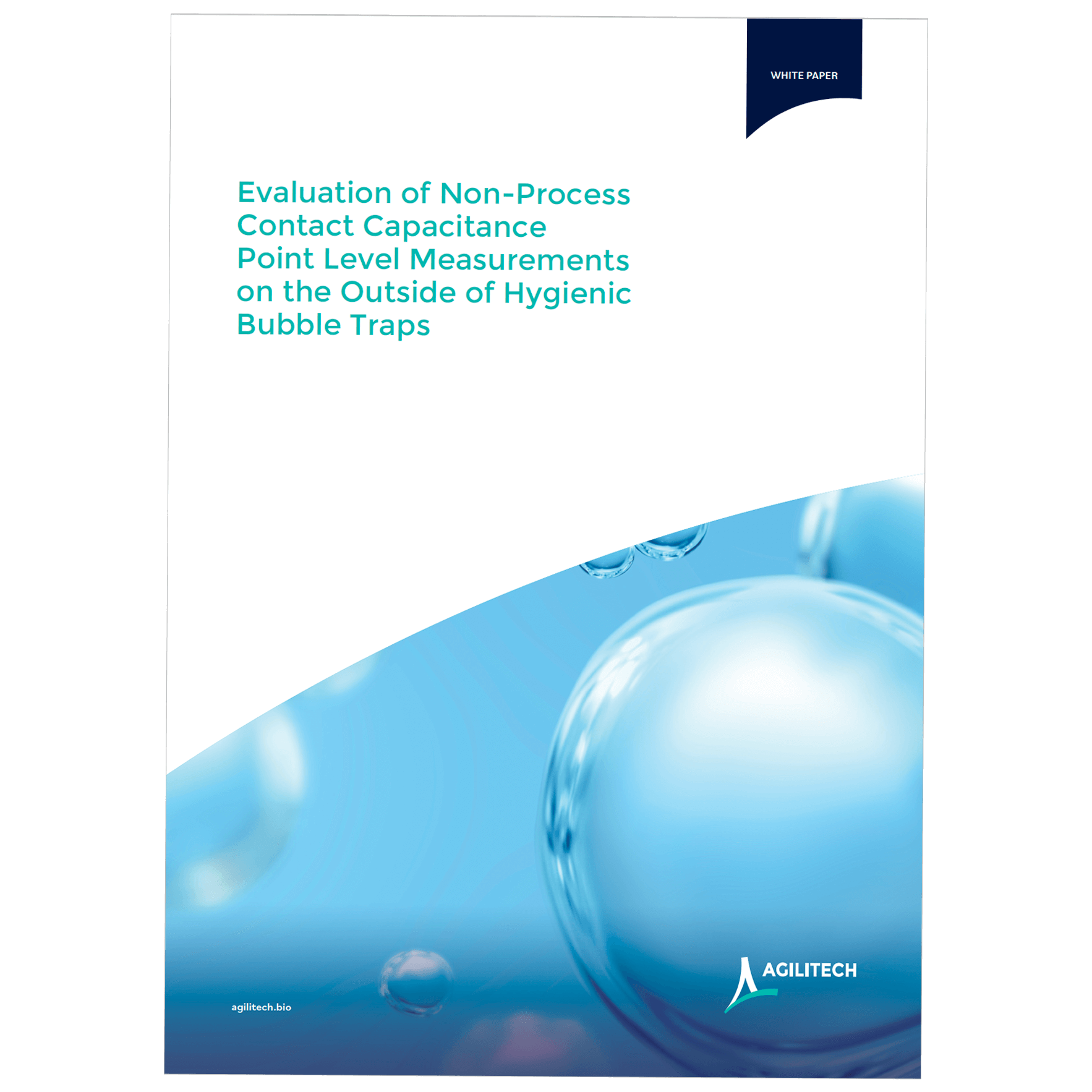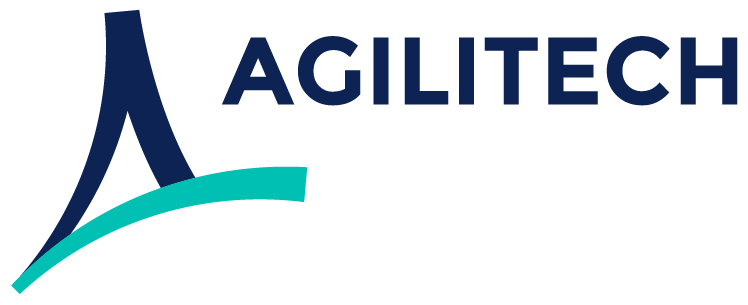White Paper: New Bioprocess Innovations
Evaluation of Non-Process Contact Capacitance Point Level Measurements on the Outside of Hygienic Bubble Traps

Want more white papers like this? Subscribe to our email list to get updates.
Optimized Hygienic Bubble Trap Level Control
Learn how externally mounted point level sensors eliminate contact with process fluids, CIP, SIP and hygienic requirements.
This white paper, authored by Dan Klees, a bioprocess industry expert and thought leader, evaluates the effectiveness of a non-contacting capacitance level probe for measuring and controlling the point level in a hygienic bubble trap. Unlike process contact technologies, this probe is mounted to the outside of the bubble trap; as a result, it does not make physical contact with the process fluid.
This means there is no need to account for certain regulatory requirements, such as Clean in Place (CIP) and Sterilize in Place (SIP), to preserve the hygienic purification process. We have used the VEGA VEGAPOINT 21® capacitance point level probe on an LJ Star® Hygienic Bubble Trap and found it to be an effective, reliable and scalable method for controlling the point level.
This offers a convenient solution for many downstream biopharmaceutical processes, such as chromatography, that rely on the use of hygienic bubble traps to separate gas bubbles from the fluid phase for an effective operation.
This white paper covers:

The importance of level control

Available technologies for level control

Capacitance Level Probe Theory

How capacitance level sensors work, both process contacting and non-contacting capacitance level probes

Test procedures, observations and conclusions regarding the use of non-contacting capacitance level probes
About the Author:

Dan Klees is an industry expert and thought leader, and Principal Biotech Consulting Engineer at Agilitech. Dan served 14 years as the founding chairman of the ASME BPE Process Instrumentation Subcommittee and holds nine U.S. and European patents related to hygienic process measurement, single-use and disposable instrumentation, as well as instrument calibration methods.
Through his extensive knowledge of biopharmaceutical operations, metrology, process instrumentation, FDA regulations, cGMP requirements and more, he is recognized as a subject matter expert on biopharmaceutical process instrumentation, process optimization, and manufacturing.
Klees is also a published author, graduate school guest lecturer and founder of consulting company, Critical Approach, LLC.
Brought to you by:

As a pioneering partner to the biotech industry, Agilitech helps to drive progress by designing and implementing state-of-the-art equipment and bioprocessing systems for biotech labs through to full-scale production, along with providing game-changing bioprocess engineering and automation services.
In a fast-moving industry that is constantly evolving, Agilitech has the flexibility and experience to tailor its offerings to the specific requirements of each and every customer. A transformative product design and engineering process is what makes Agilitech single-use products unique and ensures that the company’s solutions meet the exact needs of each and every customer. Through front-end planning and collaborative product design with their customers, Agilitech delivers truly fit for purpose solutions to real problems.
Watch the Agilitech video to learn more and visit the Agilitech website to learn about the game-changing single-use bioprocessing technologies described in this article.
Want more content like this white paper?
Join Our Email List
Get email updates about new white papers, case studies, products, and more. Please complete and submit our email subscription form. You can unsubscribe at any time.

